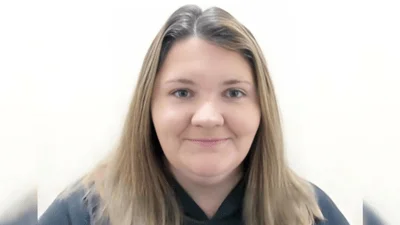State Representative Michael Coffey (IL) | Representative Michael J. Coffey, Jr. (R) 95th District
State Representative Michael Coffey (IL) | Representative Michael J. Coffey, Jr. (R) 95th District
The Illinois Department of Financial and Professional Regulation (DFPR) has announced the first phase of its plan to modernize professional licensing. This move comes in response to pressure from House Republicans and aims to address ongoing issues with the state's outdated licensing system. The DFPR oversees the issuance of licenses for various professionals, ranging from physicians to nail technicians. Delays and failures in the current system have caused significant problems for licensed professionals.
Historically, DFPR accepted paper applications and issued paper licenses. With technological advancements, a partially electronic licensure process was introduced, relying on outdated mainframe computers. However, this system has become dysfunctional over time. Many professionals have expressed concerns about long wait times for license processing, prompting lawmakers like House Minority Leader Tony McCombie and State Representative Mike Coffey to take action.
Coffey stated, “We have incredible people seeking professional careers in Illinois, but waiting months to obtain their license to work is depriving them from earning a paycheck. The result of poor policy is driving workers to other states and creates a barrier for economic growth. We must have bipartisan support to fix an ongoing issue that affects workers in Illinois.”
In response, the General Assembly passed HB 2394 during the 2023 veto session, mandating DFPR to update its licensure computer system with new software. The aim is to transition to an all-electronic, cloud-based system with verified-password data storage and retrieval.
Initially slow in implementing these changes due to procurement challenges and data transfer issues, DFPR reports progress with its new Comprehensive Online Regulatory Environment (CORE). This system will allow users secure access from various devices, reducing paperwork supervision by DFPR personnel and improving turnaround times.
As of December 2024, CORE is available only for new applications in three professions. A two-year rollout process will gradually include additional professions.
In other state matters, Illinois income tax receipts showed stagnation and decline in November 2024 compared to the previous year. Individual income taxes amounted to $1,775 million while corporate taxes were $134 million. The total $1.9 billion represents a $90 million decrease from November 2023.
This trend pressures state agencies and Governor's Office of Management and Budget (GOMB) as they strive to maintain a balanced FY25 budget amid a projected $3.2 billion deficit for Fiscal Year 2026. The upcoming legislative spring session will address this issue before adjourning on May 31, 2025.
Analysis by the Commission on Government Forecasting and Accountability (CGFA) highlights stagnant or declining employment patterns across many Illinois metro areas over five years ending October 2024. Only two out of thirteen major areas showed significant job growth; others experienced stagnation or decline.
Meanwhile, Lion Electric's school bus assembly plant near Joliet has shut down due to financial difficulties after disappointing sales of battery-powered buses unsuited for northern U.S winters' start-and-stop operations led districts away from purchases.
Finally, an appeals court ruled that Illinois’ gun ban remains effective pending further proceedings at Seventh Circuit U.S Court following challenges based on Second Amendment rights among other grounds.






 Alerts Sign-up
Alerts Sign-up